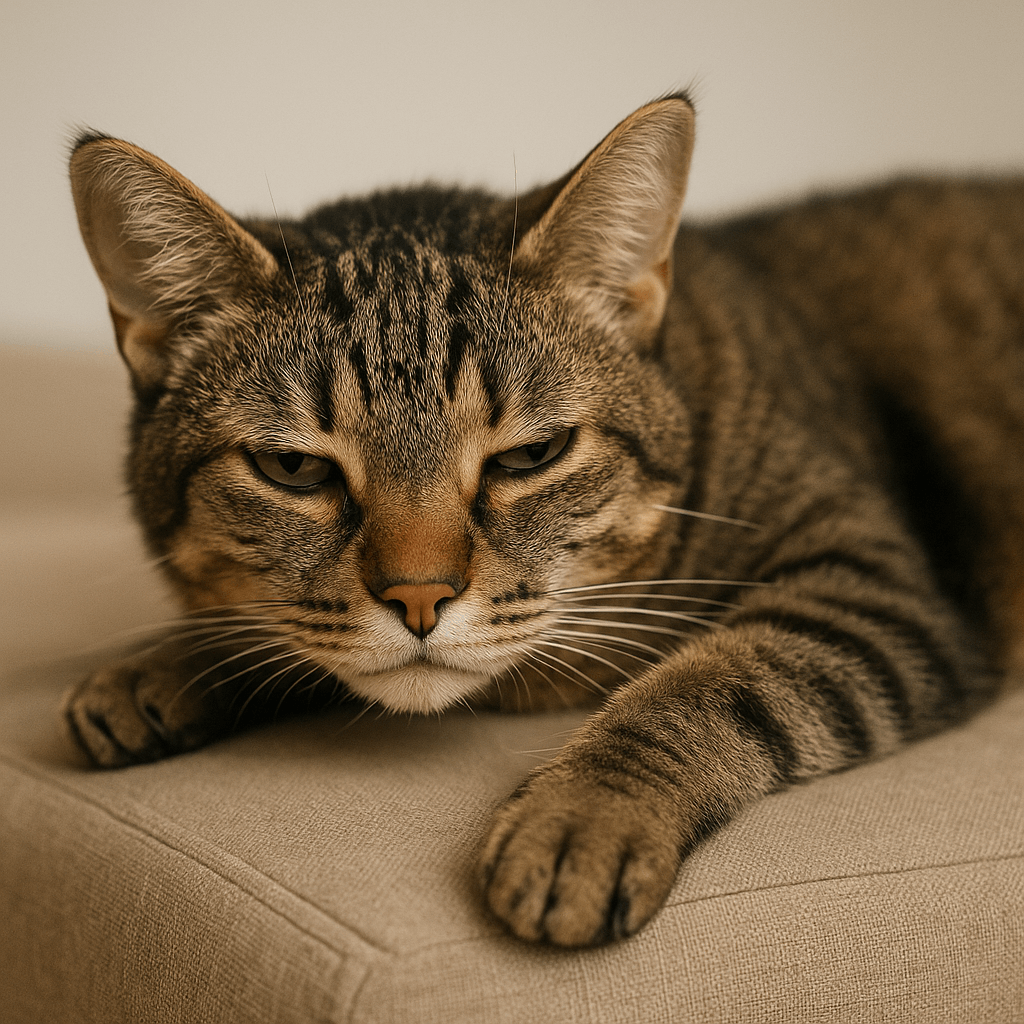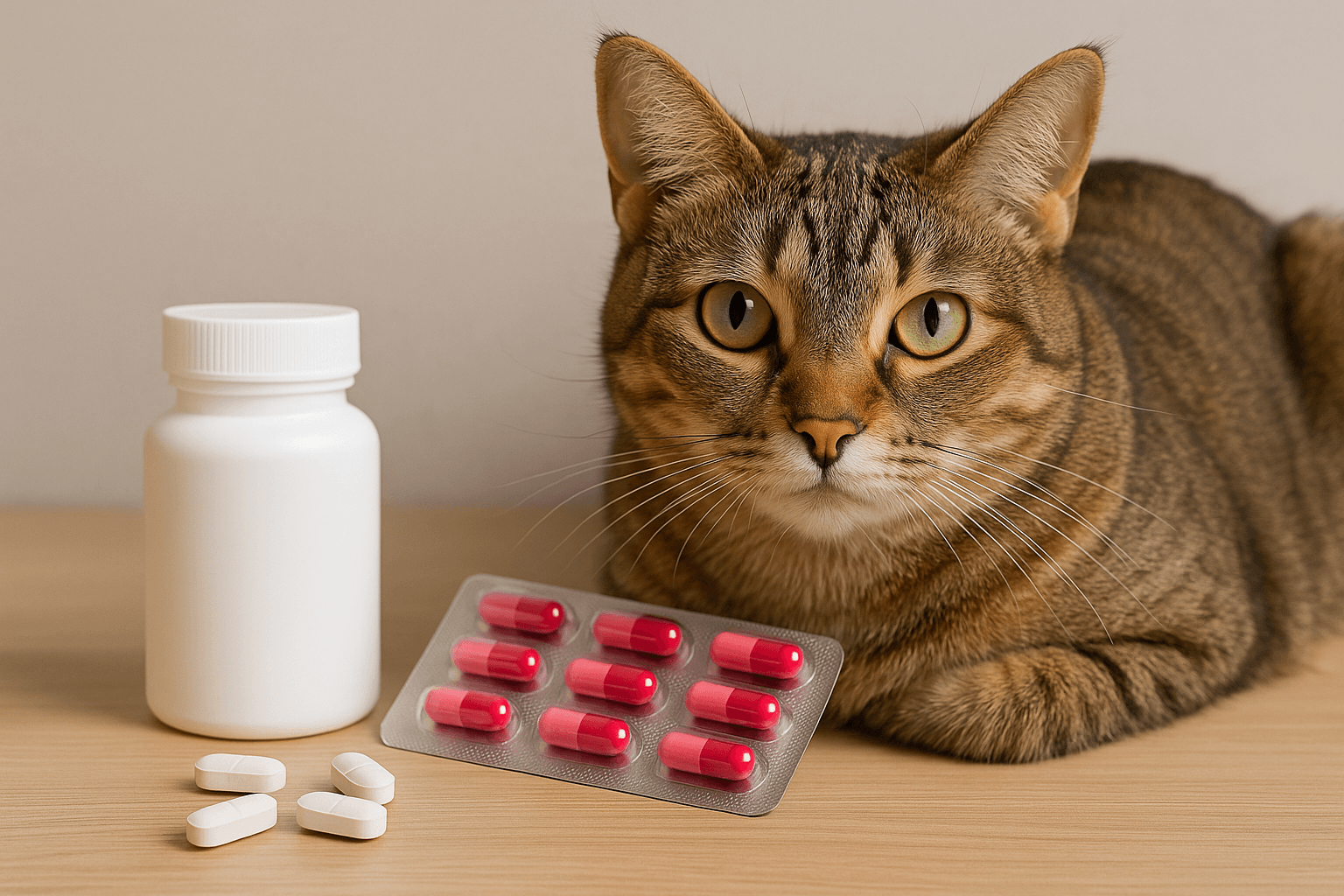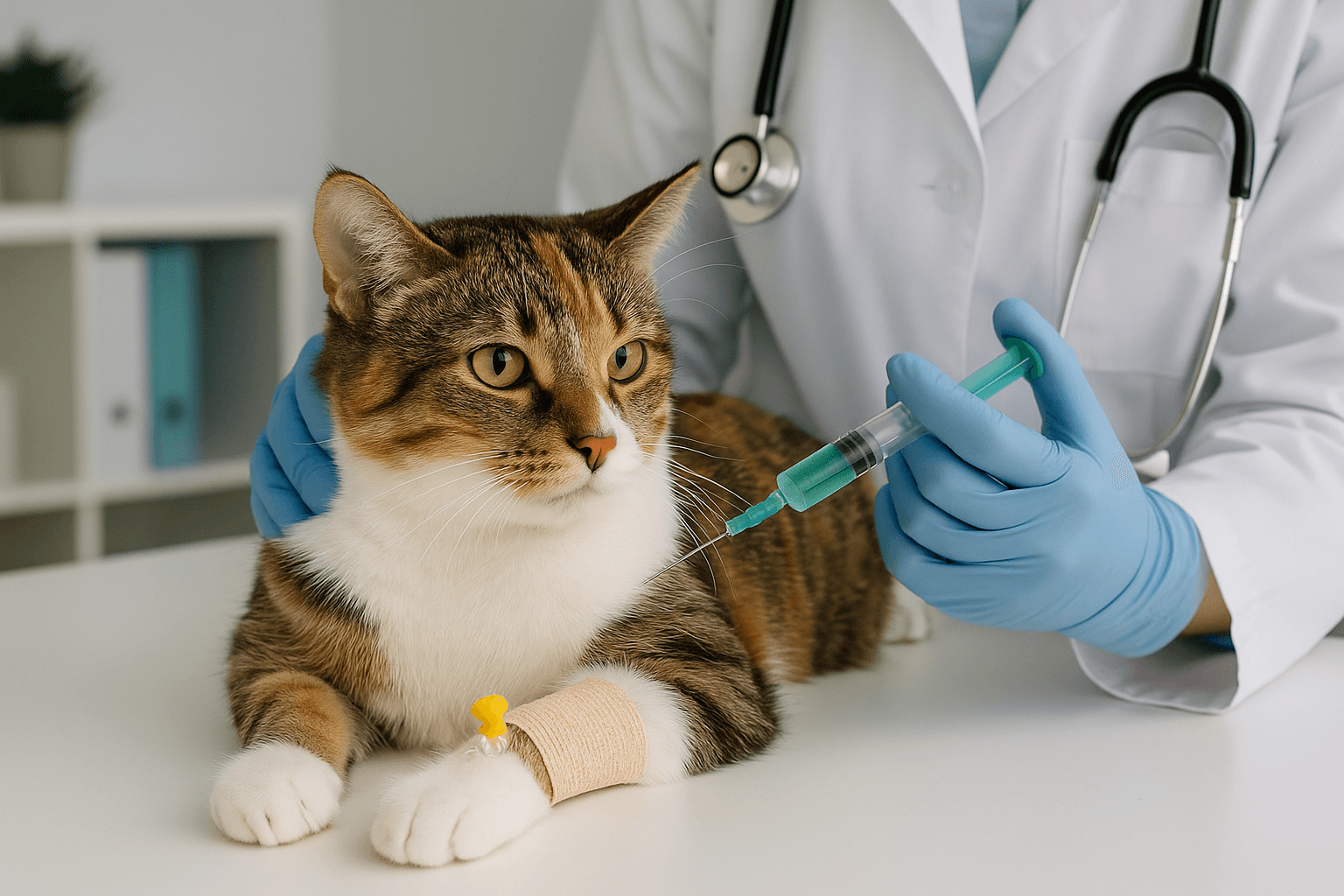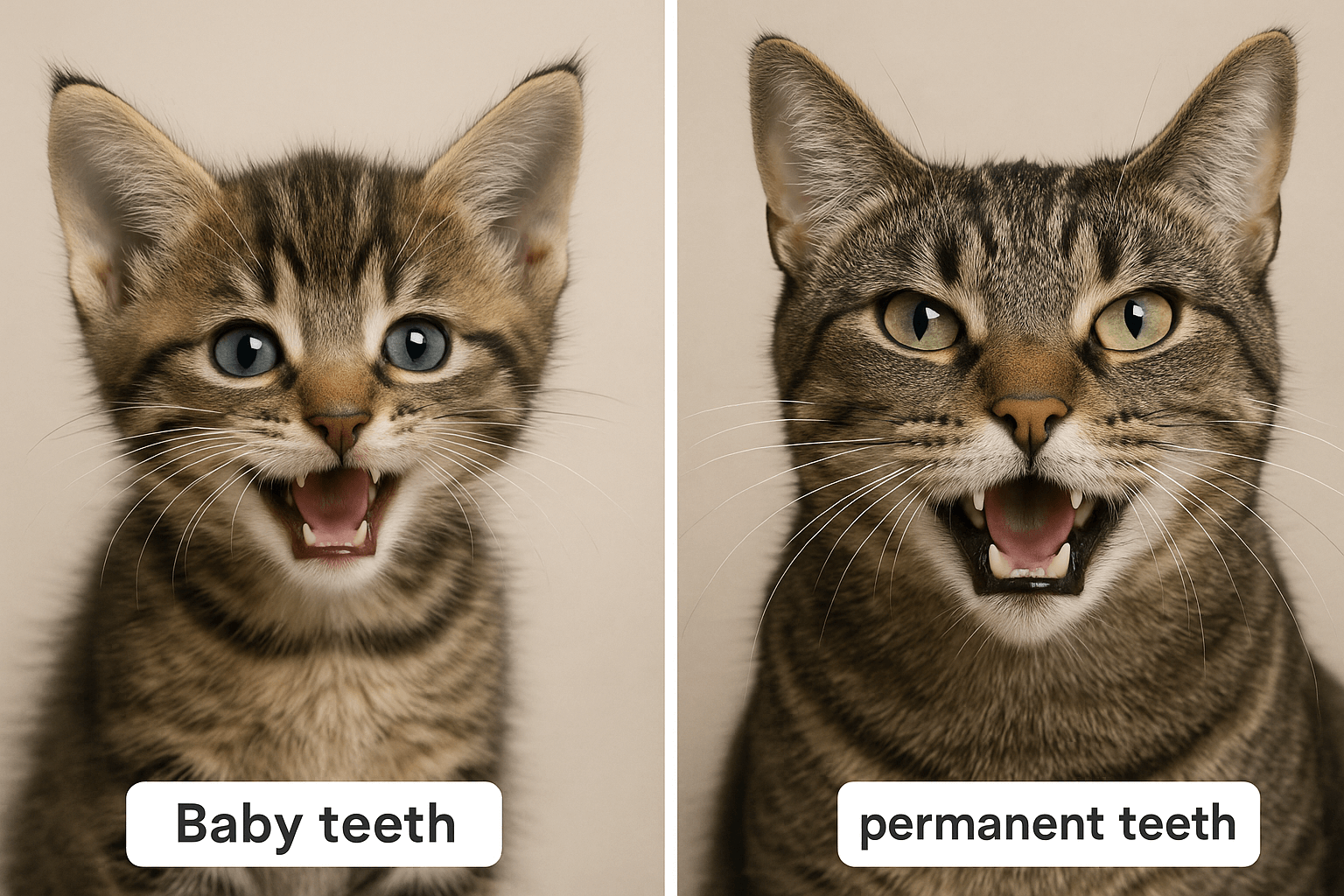Cat Liver Disease Symptoms: What Every Pet Owner Should Know
Liver disease in cats is a serious condition that requires prompt attention. The liver plays a crucial role in filtering toxins, aiding digestion, and supporting overall health. When this vital organ is compromised, it can lead to a range of symptoms that may be subtle at first but worsen over time. Recognizing the early signs of cat liver disease is essential for ensuring your feline friend receives timely veterinary care. In this article, we’ll explore the symptoms, causes, and steps you can take to support your cat’s liver health. Whether you’re a seasoned cat owner or new to pet care, understanding these key points can make all the difference in your cat’s well-being.
Common Symptoms of Cat Liver Disease
Liver disease in cats can manifest in various ways, depending on the severity and underlying cause. Being aware of these symptoms allows you to act quickly if you notice any changes in your cat’s behavior or appearance.
Lethargy and Weakness:
Cats with liver issues often appear unusually tired or reluctant to engage in activities they once enjoyed.Loss of Appetite:
A sudden disinterest in food is one of the earliest signs of liver problems, as the liver struggles to process nutrients.Weight Loss:
Unexplained weight loss can occur when the liver fails to metabolize fats and proteins effectively.Jaundice (Yellowing of Skin/Gums):
Yellow discoloration of the gums, eyes, or skin indicates a buildup of bilirubin caused by impaired liver function.Increased Thirst and Urination:
Excessive drinking and frequent urination may signal liver dysfunction affecting fluid balance.
By staying vigilant and monitoring these symptoms, you can seek veterinary care early and improve your cat’s chances of recovery.

Behavioral Changes Linked to Liver Disease
In addition to physical symptoms, liver disease can also affect your cat’s behavior. These changes are often subtle but should not be ignored, as they may indicate an underlying health issue.
Irritability or Aggression:
Cats in discomfort may become more irritable or lash out due to pain or stress.Hiding More Than Usual:
A sick cat may retreat to quiet, secluded areas as a way to cope with illness.Vocalization Changes:
Excessive meowing or unusual sounds can signal distress related to liver problems.Confusion or Disorientation:
Toxin buildup from liver failure can affect brain function, leading to confusion or erratic behavior.Reduced Grooming Habits:
Cats with liver disease may stop grooming themselves, resulting in a dull or unkempt coat.
These behavioral shifts highlight the importance of observing your cat closely and consulting a vet if anything seems amiss.
Check this guide 👉Cat Liver Disease Survival Rate: Best 7 Expert Tips!
Check this guide 👉High Liver Enzymes in Cats: Best 7 Expert Tip!
Check this guide 👉Can Cats Eat Turkey Liver? Best 7 Expert Tips!
Physical Symptoms of Liver Disease | Behavioral Symptoms of Liver Disease |
|---|---|
Lethargy and weakness | Irritability or aggression |
Loss of appetite | Hiding more than usual |
Weight loss | Confusion or disorientation |
Jaundice (yellowing of skin/gums) | Reduced grooming habits |
Increased thirst and urination | Vocalization changes |
Potential Causes of Liver Disease in Cats
Understanding the potential causes of liver disease can help you take preventive measures and recognize risk factors early. While some causes are unavoidable, others can be managed with proper care.
Hepatic Lipidosis (Fatty Liver Disease):
This condition occurs when a cat stops eating, causing fat to accumulate in the liver and impair its function.Toxic Exposure:
Ingesting harmful substances like medications, chemicals, or toxic plants can damage the liver.Infections:
Bacterial, viral, or parasitic infections can lead to inflammation and liver damage.Age-Related Decline:
Older cats are more prone to liver issues due to natural wear and tear on the organ over time.Genetic Predisposition:
Certain breeds may have a higher risk of developing liver diseases like amyloidosis.
Identifying these causes empowers you to minimize risks and provide the best possible care for your cat.
Steps to Support Your Cat’s Liver Health
While liver disease requires professional treatment, there are several ways you can support your cat’s liver health at home. These proactive measures can complement veterinary care and promote recovery.
Provide a Balanced Diet:
Feed your cat high-quality, easily digestible food that supports liver function and avoids unnecessary strain.Encourage Hydration:
Ensure your cat has access to fresh water at all times to prevent dehydration and aid detoxification.Monitor Eating Habits:
Address any changes in appetite immediately, as prolonged fasting can trigger hepatic lipidosis.Limit Toxin Exposure:
Keep your home free of toxic substances and ensure your cat doesn’t ingest harmful plants or chemicals.Schedule Regular Vet Check-Ups:
Routine examinations help detect early signs of liver issues before they escalate into severe problems.
By incorporating these practices into your routine, you can help safeguard your cat’s liver health and enhance their quality of life.
Diagnostic Tests for Liver Disease
If you suspect your cat has liver disease, your veterinarian will likely recommend diagnostic tests to confirm the diagnosis and determine the severity. Understanding these tests can prepare you for what to expect during a vet visit.
Blood Tests:
Liver enzyme levels, such as ALT and ALP, are measured to assess liver function and detect abnormalities.Ultrasound Imaging:
An ultrasound provides a detailed view of the liver’s size, shape, and texture to identify structural issues.X-Rays:
X-rays help rule out other conditions and evaluate the liver’s general condition.Biopsy:
A small tissue sample may be taken to diagnose specific types of liver disease or cancer.Urine Analysis:
Testing urine helps evaluate kidney function and detect signs of toxin buildup linked to liver failure.
These diagnostic tools enable vets to create a tailored treatment plan based on your cat’s unique needs.
Treatment Options for Liver Disease
Treatment for liver disease in cats varies depending on the underlying cause and severity of the condition. Early intervention significantly improves outcomes, making prompt treatment critical.
Fluid Therapy:
Intravenous fluids help rehydrate cats and flush toxins from their system.Medications:
Antibiotics, anti-nausea drugs, or steroids may be prescribed to manage symptoms and fight infections.Nutritional Support:
Feeding tubes may be used for cats unable to eat voluntarily, ensuring they receive adequate nutrition.Surgery (if needed):
Surgical intervention may be required to remove tumors, cysts, or other obstructions affecting the liver.Supplements:
Vitamins like SAMe or milk thistle extract can support liver regeneration and improve overall function.
With the right combination of treatments, many cats recover fully or enjoy a significantly improved quality of life.
Preventive Tips for Senior Cats
Senior cats are particularly vulnerable to liver disease due to age-related changes in organ function. Taking extra precautions can help protect their health as they grow older.
Feed Age-Appropriate Food:
Choose senior-specific diets formulated to meet the unique nutritional needs of older cats.Watch for Weight Fluctuations:
Sudden weight gain or loss can indicate underlying health issues, including liver problems.Encourage Gentle Exercise:
Moderate playtime keeps older cats active and supports healthy metabolism.Minimize Stress:
Stress can exacerbate liver issues; maintain a calm and predictable environment for your senior cat.Regular Dental Care:
Poor dental hygiene can lead to infections that spread to the liver, so prioritize oral health.
By focusing on prevention, you can help your senior cat stay healthy and happy for years to come.
Frequently Asked Questions About Cat Liver Disease
What are the first signs of liver disease in cats?
Early signs include lethargy, loss of appetite, and weight loss.
Can liver disease in cats be cured?
Some forms of liver disease can be managed or reversed with timely treatment, while others require long-term care.
How is liver disease diagnosed in cats?
Blood tests, ultrasounds, and sometimes biopsies are used to diagnose liver disease.
Is liver disease painful for cats?
Yes, liver disease can cause discomfort, especially if toxins build up or the liver becomes inflamed.
What foods should I avoid feeding my cat with liver disease?
Avoid fatty, processed, or high-sodium foods that strain the liver further.
Taking Action for Your Cat’s Liver Health
Liver disease in cats is a complex but manageable condition when detected early and treated appropriately. By familiarizing yourself with the symptoms, causes, and preventive measures, you can play an active role in safeguarding your cat’s health. Remember, your veterinarian is your most valuable ally in navigating this challenging diagnosis. With love, care, and timely intervention, you can give your feline companion the best chance at a happy, healthy life—even in the face of liver disease.
Understanding Meloxicam for Cats: A Comprehensive Guide When it comes to managing pain and inflammation in cats, veterinarians often turn to …
Amoxicillin for Cat UTI: Best 7 Expert Tips! Discover safe usage, dosage guidelines, and expert advice on treating feline urinary tract infections effectively with amoxicillin.
Understanding Cat Cancer Treatment: Best 7 Expert Tips! Discover expert advice on managing feline cancer, from early detection to treatment options, ensuring your cat’s health and comfort.
Cat Baby Teeth vs Permanent Teeth: Best 7 Expert Tips! Discover expert advice on feline dental development, teething stages, and lifelong oral care to keep your cat’s teeth healthy and strong.



